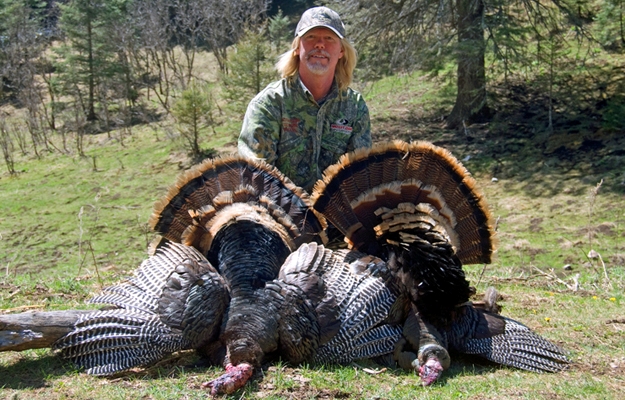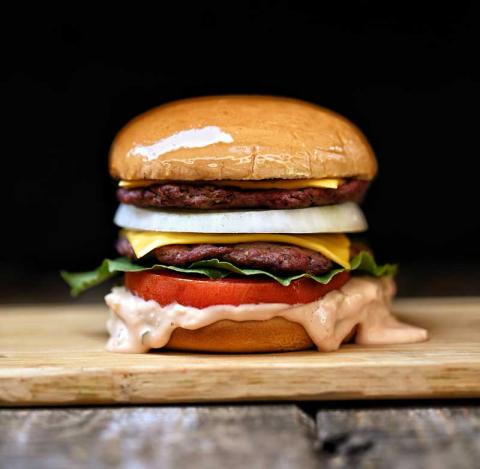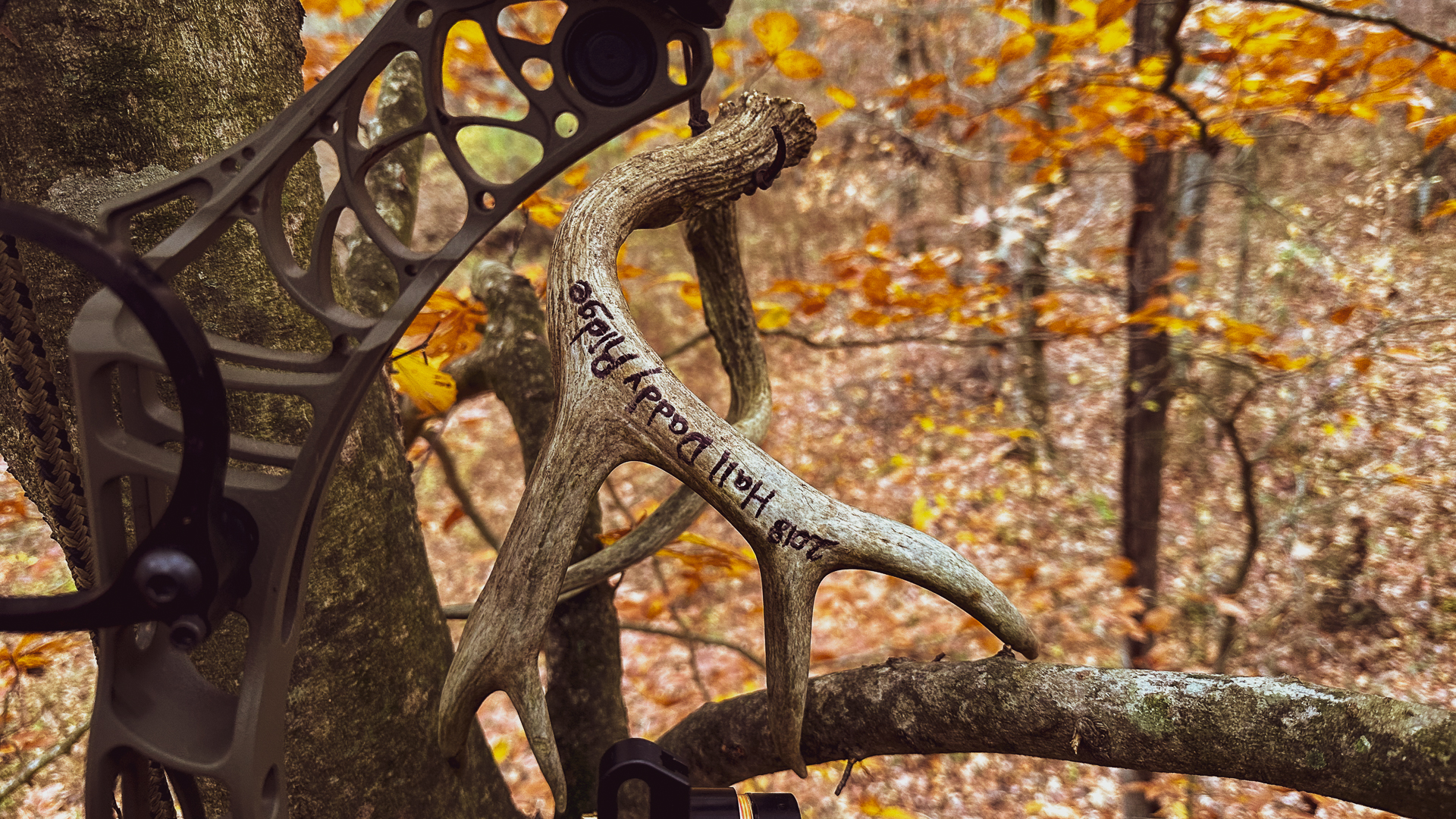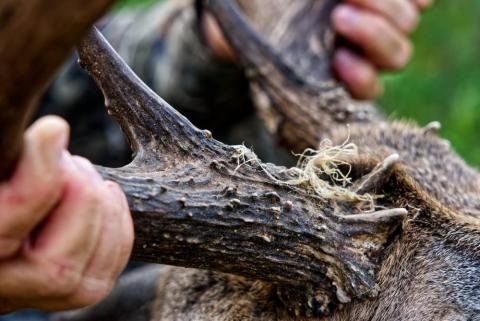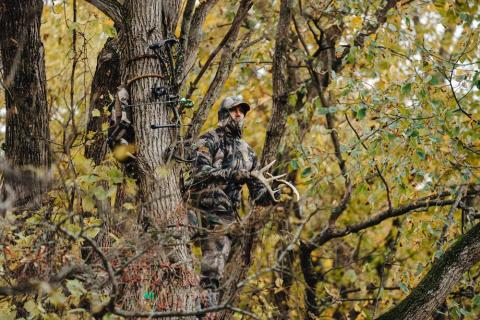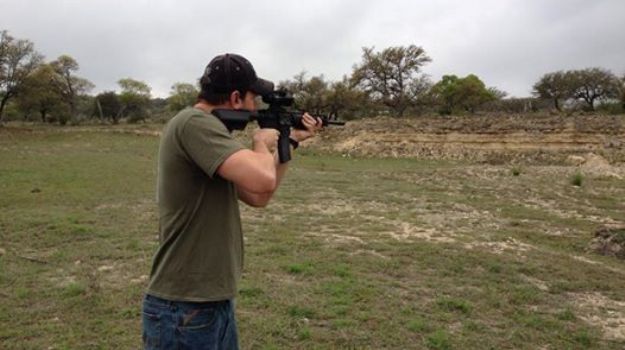
Editor’s Note: John Phillips is a tight end for the San Diego Chargers. After graduation from the University of Virginia, he’s played in the NFL (National Football League) for 6 years. Being born and raised in Virginia, he can’t remember a time when he hasn’t hunted for black bears, grey squirrels and all animals in-between.
I’ve been playing professional football for 6 years. When I’m asked, “How long do you think you can stay in the game?” my answer to that question is, “As long as my body will hold up.” I’m hoping I can play for several more years. I do a lot of things besides play tight end. My main job is to move guys that don’t want to be moved and take them to places they don’t want to go. Football is a very physical and demanding sport. I’m 6-foot, 6-inches tall and weigh 260 pounds.
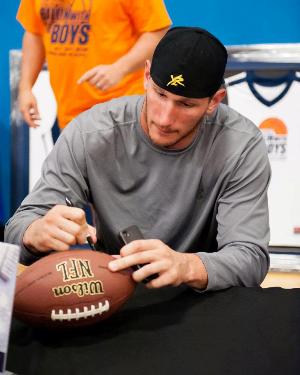 Another question I’m asked a lot is, “How much weight can you bench press?” My answer is, “If I have to push a heavy weight off my stomach then that means I’m on the ground, and some big lineman is on top of me.” I work out on an incline bench. We spend more time in the weight room doing repetitions with weights than we do trying to max out the weight we can push up when on our backs. No football players want to ever be on their backs. Our job is to put other people on their backs. So, we do a lot of functional training like power lifting and explosion type exercises. When you get to this professional level of football, keeping your joints healthy is a major concern. We’ll use lighter weights and try to push them off our chests. We do more repetitions with the lighter weights than we do trying to see how much weight we can lift. I realize, if I’m ever flat on my back and pushing a 300-pound guy off my chest, I’ve just lost the fight. We do the incline press instead of the bench press, because we want to strengthen our muscles, so we can push players away from us, instead of having them land on top of us. We do a lot of heavy weights when we’re doing squat lifts, because we want our legs to be strong. Most of our power comes from our legs and our backs.
Another question I’m asked a lot is, “How much weight can you bench press?” My answer is, “If I have to push a heavy weight off my stomach then that means I’m on the ground, and some big lineman is on top of me.” I work out on an incline bench. We spend more time in the weight room doing repetitions with weights than we do trying to max out the weight we can push up when on our backs. No football players want to ever be on their backs. Our job is to put other people on their backs. So, we do a lot of functional training like power lifting and explosion type exercises. When you get to this professional level of football, keeping your joints healthy is a major concern. We’ll use lighter weights and try to push them off our chests. We do more repetitions with the lighter weights than we do trying to see how much weight we can lift. I realize, if I’m ever flat on my back and pushing a 300-pound guy off my chest, I’ve just lost the fight. We do the incline press instead of the bench press, because we want to strengthen our muscles, so we can push players away from us, instead of having them land on top of us. We do a lot of heavy weights when we’re doing squat lifts, because we want our legs to be strong. Most of our power comes from our legs and our backs.
As much as we train our bodies, we put in as much if not more time training our minds as professional football players. Most football fans never see or understand how much of a mental game football really is. When we get home from a 12-hour day of practice or playing, we usually have to watch at least 2 hours of film about our next opponent. Actually, watch isn’t a good word. We have to intensely study the film of our opponents. We have different opponents every week. Each member of a professional football team has one or two specific opponents that he has to learn everything he can about before game day. We study hours and hours and hours each week. We study our opponents to try and look for advantages and keys that will tell us what that opponent will do, before he does it. Football is really a big chess match, where you take off the pads and look beyond the goal posts and crowds. Each player on the football team is trying to outthink the man in front of him, or the man he’ll compete against, once the ball is snapped.
A good deer hunter studies the land he’ll be hunting. He gets clues from the deer signs in the woods. Maybe he has trail-camera pictures that actually show him the buck he’s trying to take. Then the deer hunter tries to determine when and where that buck will be the most vulnerable. Professional football is much like being a good deer hunter. You do everything you can to put yourself in a situation to win on the day you’re going to hunt that deer. For the football player, on game day when I have to match up with the players I’ve been studying all week, I try to mentally prepare myself to be in the right place at the right time to try and be successful for myself and my team.
Day 4: John Phillips of the San Diego Chargers Had a Choice Between Taking a Bobcat and a Red Stag
















